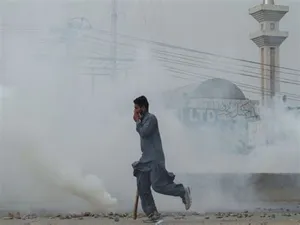
Religious extremism and blasphemy have been used to serve political ends in Pakistan since its inception and it continues even now when the country faces an unprecedented financial crisis, reported European Times.
The democratic government and even Pakistan’s powerful Army cannot dare ignore Islamists. There has been violence, and bloodshed whenever the civil government tried to rein in extremist forces. It shows how radical teachings of Islam are deeply entrenched in the minds of people in Pakistan. And it is reflected in the fact that the priorities the country is giving to blasphemy when its very existence is in danger, reported European Times.
Pakistan is on the verge of bankruptcy and is roiled by several crises such as food shortage, high inflation, shrinking trade, unemployment, power outage, political instability, and growing debt. Yet, the focus has been on making religious punishments more rigorous.
Pakistan’s foreign reserves have fallen to USD 3.09 billion, over 42 million people have slipped into poverty, and food prices have skyrocketed. The country is experiencing a scarcity of wheat, an essential commodity, reported European Times.
Uzair Younus, Director of the think-tank Atlantic Council’s Pakistan Initiative, said the middle class and lower class in Pakistan had lost their purchasing power by 30 per cent. “People cannot make ends meet. Life is unbearable,” he said.
There is a shortage of medicines, and it is set to become worse as pharma companies are planning to halt production over unavailability of raw materials, power crisis, and higher production costs.
Meanwhile, the government, political leaders, activists, and students appear more concerned about religious issues. Protests are being held across Pakistan against the desecration of the holy Quran by far-right activists in Sweden and the Netherlands, reported European Times.
People now are more involved in holding rallies seeking action against Sweden and the Netherlands. College students in Peshawar ran riots over the insults of Prophet Muhammed. This showed how religious sentiments are outweighing the vital issues of hunger, employment and development among the youth.
Politicians and religious leaders are making bizarre statements. One Islamist leader suggested using a nuclear bomb to punish Sweden and get international support for the economic crisis.
“Take the Quran in one hand and the atom bomb suitcase in the other, and then everyone in the world will rush to help Islamabad,” Tehreek-e-Labbaik leader Saad Rizvi said. Ministers in the Islamabad government too are busy making inflammatory remarks, hurting the sentiments of non-Muslim religions, to garner public support, reported European Times.
Pakistan’s economy is in a precarious situation and is not likely to grow by over 2 per cent. The recent floods that brought about a third of the country under water have caused damage equivalent to about 4.8 per cent of Pakistan’s GDP, according to the World Bank.
The flood crisis and ongoing high inflation have affected every section of society, every religion, and every state in Pakistan. Notwithstanding the humanitarian crisis, the Islamabad government chose to give the priority to strengthening the anti-blasphemy law, which Pakistan’s civil society feels would target minorities, especially, Christians and Hindus.